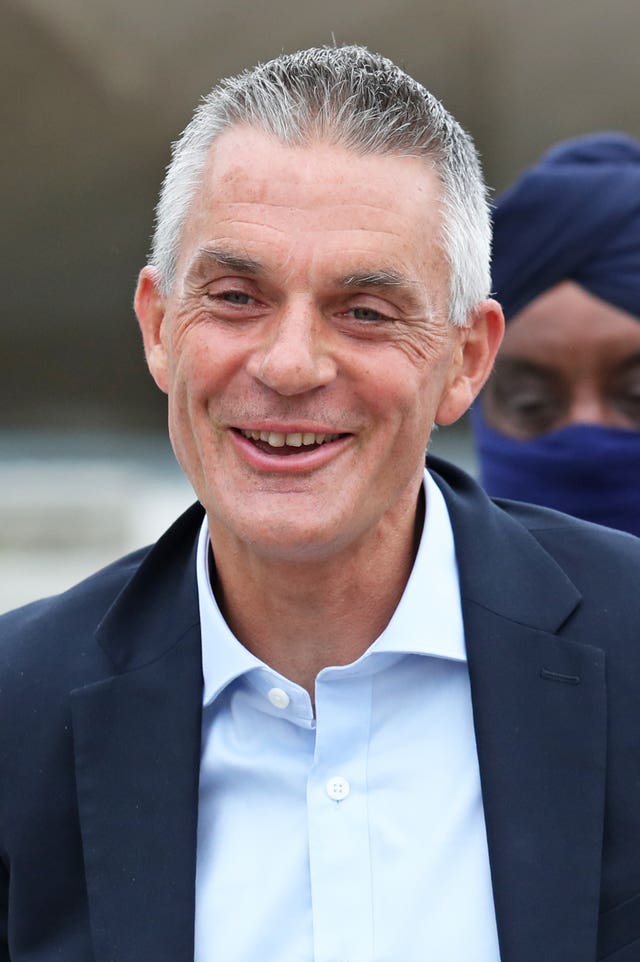New BBC boss warns staff over their use of social media
Tim Davie said renewing the BBC’s commitment to being impartial is the ‘number one priority’

The BBC’s new director-general has warned staff over their use of social media, saying sharing their opinions online could harm the broadcaster’s reputation for impartiality.
Tim Davie said renewing the BBC’s commitment to being impartial is the “number one priority” amid accusations of bias from figures across the political spectrum.
Addressing staff at the BBC’s Cardiff office, Davie said: “If you want to be an opinionated columnist or a partisan campaigner on social media then that is a valid choice, but you should not be working at the BBC.”
He added: “Our research shows that too many perceive us to be shaped by a particular perspective.”
Davie said new rules around employees’ use of social media will be introduced and will be “rigorously enforced”, while also hinting at a crackdown on the corporation’s stars making money from private companies, adding there will be “clearer direction on the declaration of external interests”.
Davie added: “To be clear, this is not about abandoning democratic values such as championing fair debate or an abhorrence of racism. But it is about being free from political bias, guided by the pursuit of truth, not a particular agenda.”
Several high-profile BBC employees have been accused of bias.
Newsnight presenter Emily Maitlis was criticised for her opening monologue about the Government’s handling of Dominic Cummings’ lockdown trip.
The BBC ruling the introduction “did not meet our standards of due impartiality”.
And BBC Breakfast host Naga Munchetty was rebuked last year after commenting on remarks made by US President Donald Trump. Then-chief Lord Tony Hall later reversed the decision.

Davie also addressed doubts over the future viability of the licence fee funding model.
He said he was not in favour of a Netflix-style subscription fee that would make the BBC “just another media company serving a specific group”.
He said: “The evidence is unequivocal: the future of a universal BBC can no longer be taken for granted. We have no inalienable right to exist.
“We are only as good as the value we deliver our audiences, our customers. We must grow that value. That is our simple mission.
“For the avoidance of doubt, I do not want a subscription BBC that serves the few. We could make a decent business out of it, and I suspect it could do quite well in certain postcodes, but it would make us just another media company serving a specific group.”
“The truth is that we have tried to cope with increasing competition by making more and spreading ourselves too thinly,” he said,
“Of course, we need to offer a broad choice as the BBC, and we should not retreat to a narrow offer. But we have been too slow to stop things that don’t work.”
Davie said the BBC will “look in all areas” and “identify how we can have more impact by making less”.
He added: “I want us to consider what we would do if we could only make 80% of our current hours. What would we stop?”
He said the “simple” move was not “about cuts to save money”.
Davie praised dramas such as Normal People, Line Of Duty, Fleabag, an EastEnders special and documentaries Blue Planet 2 and Once Upon A Time In Iraq.
He said Strictly Come Dancing, Wimbledon, comedy This Country, the BBC’s VE Day 75 coverage, educational service BBC Bitesize, the World Service and regional and national news were all examples of where the broadcaster builds a connection with the audience.
But the BBC must re-allocate “funds to where they generate most value – to ensure that we make our output world-beating and utterly distinctive”.
He also said there was “too much bureaucracy”, adding: “I want every area of the BBC not to moan about bureaucracy but dismantle it.”





